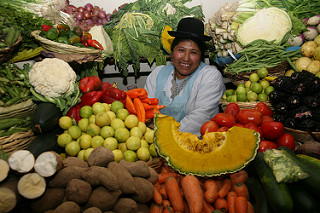LEDS in Practice: Promote gender equality to realize the benefits of low emission development

Introduction
Gender equality is fundamental to achieving sustainable development, as recognized by the Sustainable Development Goals (SDGs)—explicitly in SDG 5 on gender equality, and as a prerequisite to achieving other SDGs, from improved education to health to addressing climate change. Low emissions development strategies (LEDS) are also central to the mitigation of current and future greenhouse gas emissions, which if unchecked will accelerate climatic change and further exacerbate existing vulnerabilities, and thereby undermine efforts to adapt to climate change.
By actively engaging both women and men in all segments of society, countries can tap into hidden potential and make their transition to low carbon societies truly sustainable. For example, women often play a central role in sectors where emissions can be substantially reduced in tandem with development benefits, such as efficient household energy use, support to income generation activities, and shaping consumption patterns towards low emission products. In addition, identification of women as active members of society and promoting their participation in new/nontraditional climate related job opportunities, for example as renewable energy technicians and entrepreneurs, will contribute to poverty reduction and economic growth.
Gender equality can contribute to low emission development strategies (LEDS) and increase the efficiency and adequacy of climate change initiatives by:- enhancing the sustainability of LEDS design and implementation by ensuring full and active participation of women and men
- identifying and providing solutions to lift women and men out of poverty
- understanding how women’s and men’s differentiated consumer patterns affect their carbon footprint.
This publication*, which was produced in partnership with the International Union for Conservation of Nature (IUCN) Global Gender Office, explores how low emission development can benefit gender equality and how gender equality goals can be integrated into low emission policies and plans. It also presents short case studies from Peru and Tuvalu.
*download the full report form the right-hand column. The key messages from the report are provided below – see the full text for more detail and further resources.
Key Messages
-
Gender equality is fundamental to achieving sustainable development, and well designed LEDS yield benefits to sustainable development by enhancing gender equality.
-
LEDS that actively engage both women and men are more effective, efficient, and sustainable.
-
Gender responsive LEDS can contribute to reducing poverty.
This paper is one of LEDS GP’s ‘LEDS in Practice’ series, from their Benefits Working Group, which presents the benefits of LEDS for resilience, trade, employment, health, energy security, industrial competitiveness, and gender equality.
The case studies were developed in cooperation with Conservation International, the International Centre for Trade and Sustainable Development (ICTSD), the International Labour Organization (ILO), the Energy research Centre of the Netherlands (ECN), the United Nations Industrial Development Organization (UNIDO) and the International Union for Conservation of Nature (IUCN), respectively.
Each factsheet highlights opportunities and challenges, and includes policy recommendations and lessons learned from case studies, as well as an overview of tools to assess and integrate benefits into LEDS and Nationally Determined Contributions (NDCs).
Find the other case studies here:
- Boost ecosystem resilience
- Ensure energy security
- Use trade policy
- Create green jobs
- Gain the competitive edge
This series complements another set of ‘LEDS in Practice’ publications from our LEDS GP Transport Working Group, which highlight the social and economic benefits of low carbon urban transport (find out more here):
(0) Comments
There is no content